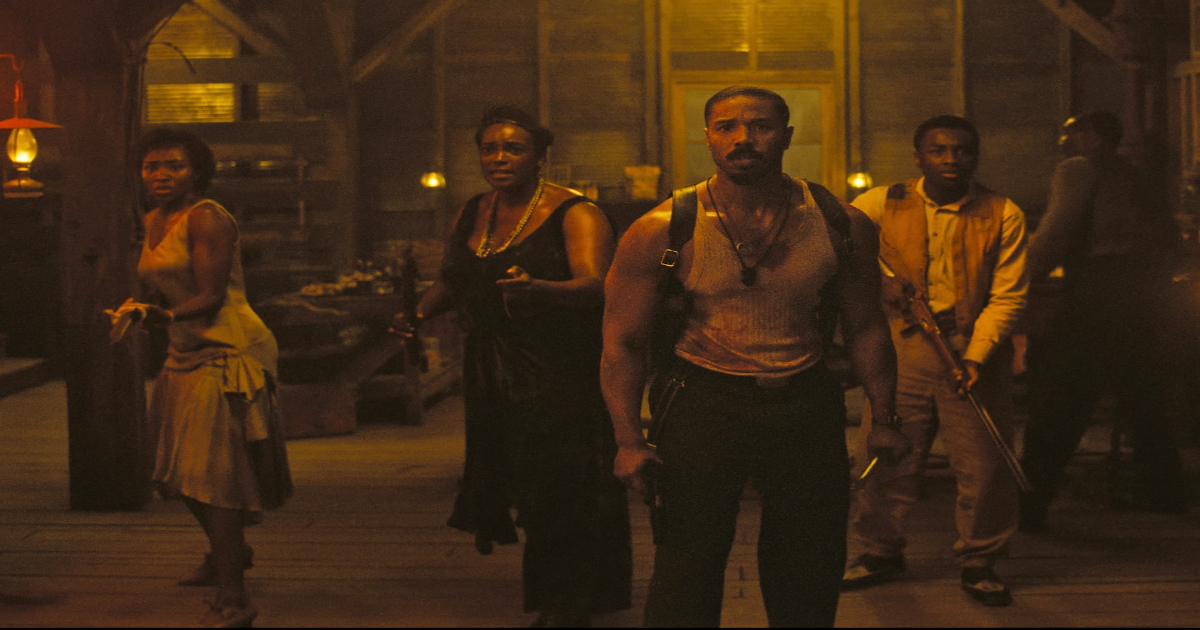“Sinners” is a movie that, when it was over, had me wanting to run out of the theater so I could go sprint through a wall. It’s exhilarating in the visceral way only movies can be. “I want people walking out of the theater and thinking, ‘Man, I had a full meal,’” writer and director Ryan Coogler told Interview magazine, and if you were wondering how big of a deal the “Black Panther” director has become, the interviewer he gave that quote to was LeBron James. The film, which led the box office during its opening weekend, is a huge, staggeringly ambitious swing — part stomping musical, part period piece, part piercing social commentary, and part, uh, vampire flick. That it is all of these things simultaneously and also a huge commercial hit is ridiculous and wonderful.
The film is essentially the result of Coogler cashing in his chips from the massive financial success of the “Black Panther” and “Creed” films and producing something deeply personal and challenging. “Sinners” isn’t shameless awards bait — though you can count on it being nominated for Best Picture next January regardless — but it is the result of an artist putting his entire career on the line to make a sweeping film about his own obsessions.
The film was the subject of a massive bidding war among studios and ended up at Warner Bros., the classic film studio that has been reeling in recent years under the leadership of Warner Bros. Discovery CEO David Zaslav, who, after shelving some films for tax purposes, had earned the reputation as artist-unfriendly. (And even movie-theater-unfriendly.)
New executives were brought in to change that perception, and Warner Bros. co-chairs Pam Abdy and Michael De Luca began to greenlight riskier, non-superhero projects by respected filmmakers like Bong Joon Ho (“Mickey 17”); Maggie Gyllenhaal (the upcoming “The Bride!,” a “punk rock” version of “The Bride of Frankenstein” starring Jessie Buckley, Christian Bale and Penélope Cruz); and, most intriguing, Paul Thomas Anderson’s “One Battle After Another,” starring Leonardo DiCaprio and inspired by a Thomas Pynchon novel.
The shift is partly brand management — Zaslav had deeply damaged Warner Bros.’ reputation, including burying a very good movie, “Juror No. 2,” by studio legend Clint Eastwood just last year — but it is also a strategy pivot the industry has been watching closely: original stories told by independent artists dedicated to maximizing the power of the theatrical experience.
Not all those bets have paid off. “Mickey 17,” a fun if flawed movie, is expected to lose millions. “Sinners” is what happens when it works, when a studio trusts its talent to make a unique movie experience for audiences tired of comic book spin-offs and sequels. It was a surprise smash its opening weekend, earning an extremely rare “A” CinemaScore from audiences, the first horror film to ever achieve that grade.
Coogler — already the highest-grossing Black director of all time — has, at one of the more perilous moments in movie history, with streaming services ascendant and theatrical windows shrinking, done what in recent years only Christopher Nolan and Quentin Tarantino have pulled off before him: He made a movie meant to be seen in movie theaters, based on his own vision, and reminded everybody just why they loved going out to theaters rather than just sitting on their couch mindlessly clicking in the first place.
Both Nolan’s “Oppenheimer” and Tarantino’s “Once Upon a Time … in Hollywood” were big swings from studios (Universal Pictures and Sony Pictures, respectively) that were beloved by critics and audiences, and made by filmmakers who insisted on their films being seen in theaters, as a collective experience. Greta Gerwig’s “Barbie,” which made more money than any of these movies, may have been a preexisting brand spin-off, but it was also whip-smart. (Contrast this with the Russo brothers, who took the goodwill they earned from making Marvel’s “Avengers” films and turned it into streaming service slop.) “Everybody on the project knew that this was going to theaters,” Coogler told James. “They all care about seeing movies on a big screen and what it feels like when you see a good one.”
“Sinners” vied for the box office crown last weekend with “A Minecraft Movie,” which sounds like the sort of ugly IP brand junk that audiences are tired of until you actually see it and realize it’s goofy, good-hearted and lively. This is especially true when you watch it with kids, its target audience, who have been so active and involved in the experience that screaming “chicken jockey!” during one moment in the movie has become a TikTok meme. We can train the kids that going out to see a movie is fun.
You can’t help but wonder if this could be a transformative moment for the industry not entirely unlike the New Hollywood of the late 1960s and early ′70s, when studios, out of ideas for a fledgling industry, gave brilliant filmmakers like Francis Ford Coppola, Robert Altman and Martin Scorsese freedom and license to tell their most ambitious stories to mainstream audiences. The result? Some of the greatest American films of all time. They made money and turned the United States into the center of the cinematic universe for decades to come, but they also minted whole new generations of people who learned to love seeing movies together on the big screen.
“Sinners” is in that grand tradition, proof of what movies can still be. It’s enough to make you run out of the theater and through a wall. And then turn around and run right back in.
